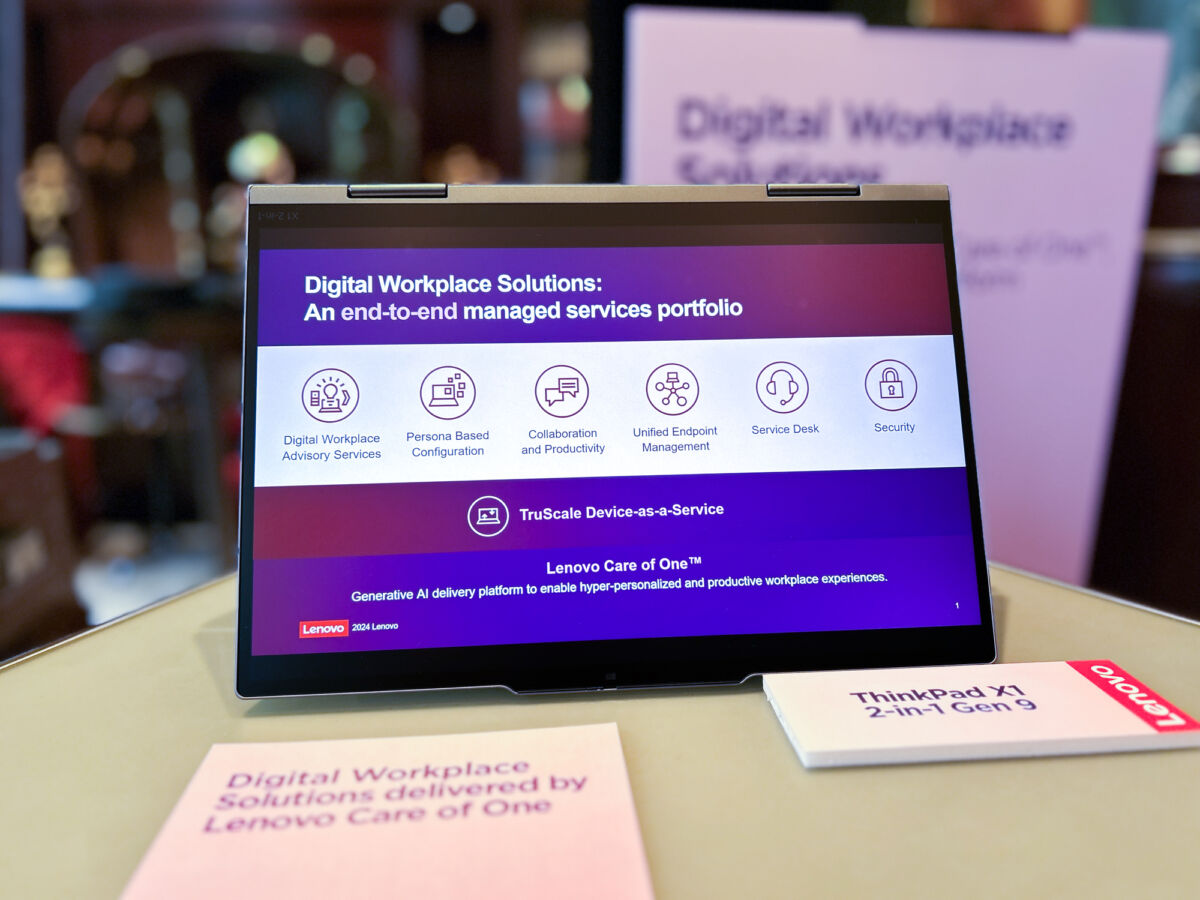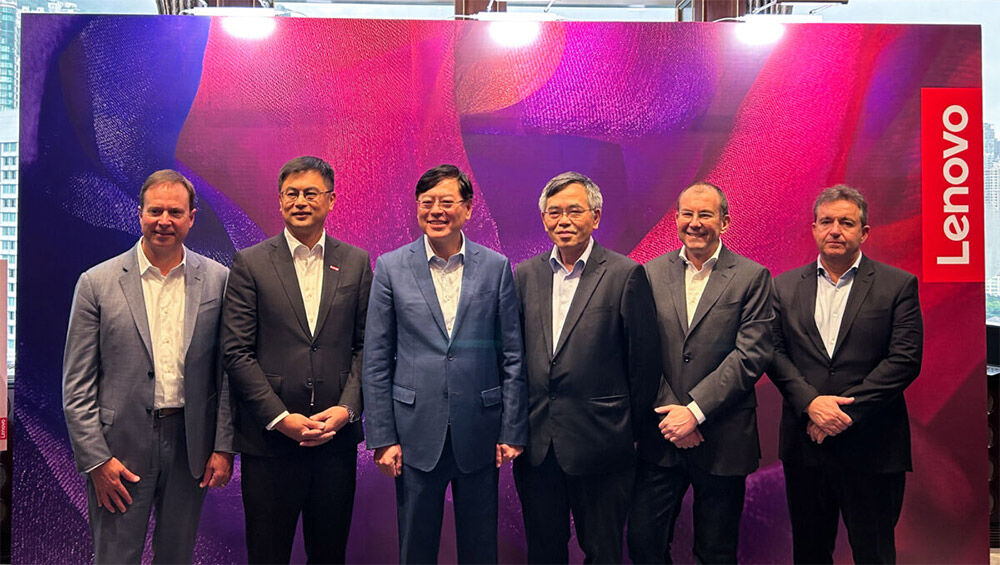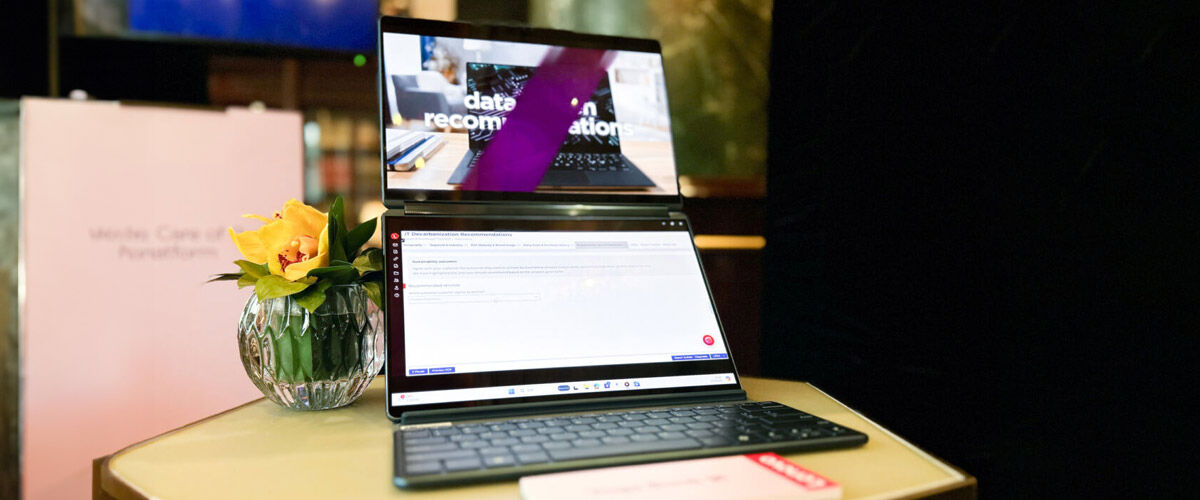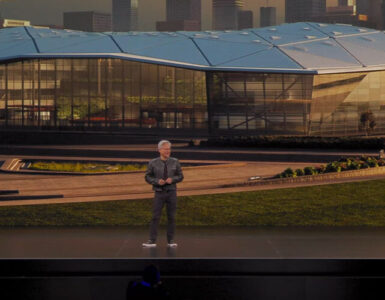As is often the case with the latest innovations, the rise of artificial intelligence (AI) has opened the doors for upgraded technology, productivity, and user experiences. Lenovo is certainly no stranger to harnessing its potential, having grown its own arsenal to include various smart devices, new architecture, enterprise intelligence solutions, and more recently, a personalised AI agent, Xiaotian, supported by Chinese giant Alibaba’s large language model, Tongyi Qianwen.

AI PCs or personal computers that can run generative AI tasks locally, form a bulk of the focus for now, and to the next year or so, at least and the company shared plans to roll out more AI PCs during their recent fiscal year 23/24 earnings conference in Hong Kong, targeting a window that spans the second half of this year to 2025.
The move comes amid a projected increase in demand for AI-powered offerings over the next few years, with Lenovo committed to elevating the standard Windows and Copilot, Microsoft’s AI-powered chat assistant, experience. One such way is to design its own intellectual property and software, some of which are already out on the market, that offer a touch of personalisation.
“We will have unique Lenovo experiences that are centred around services or interaction with the machine,” says Luca Rossi, global head of the Intelligent Devices Group, in an interview with Geek Culture.

“We’re working in a direction that over time, not immediately, will move you from app-based [actions] – meaning that you have to click on Microsoft Excel yourself if you want to open it – to intent-based, where the machine becomes your twin and knows what you want to do, so it will pull up the software before you even ask for it.”
He paints a rosy picture of a world where AI can adapt to different individual needs, behaviour, and preferences, and act accordingly without the need for specific keywords or wake phrases like “Hey Google” or “Alexa, play…”
Instead, the machine is capable of executing a command based on general statements like, “I want the screen to be brighter”.
“Our view is that you’ll be able to communicate with the computer, with your voice, without having to say it in a particular way,” Rossi shares. “The next step is that the machine knows you so well that it can anticipate your needs. For example, [since] it knows your calendar, it’s able to call for an Uber (a ride-hailing service) before you do. It’s a little visionary, but it will happen.”
While these possibilities may sound right out of an episode from Netflix sci-fi series Black Mirror, there’s no denying the convenience that such tailored service can bring to daily life. In their current state, AI PCs are already a force to be reckoned with, shaking up the longstanding Wintel – a portmanteau of “Windows” and “Intel” – dominance by bringing more silicon players into the fold.

Joining Lenovo on the AI journey is Motorola, which it has a “very ambitious” global plan for. Naturally, this means the latter’s offerings are included as part of Lenovo’s ecosystem, with the Smart Connect software boasting seamless connectivity across all IoT (short for Internet of Things) devices from both companies.
As the AI race continues to rage on, Lenovo is adopting an optimistic outlook for the road ahead. The vast and untapped potential of AI leaves plenty to be explored, and the industry giant is all too happy to take on the challenge.
After all, innovation is a never-ending process.













